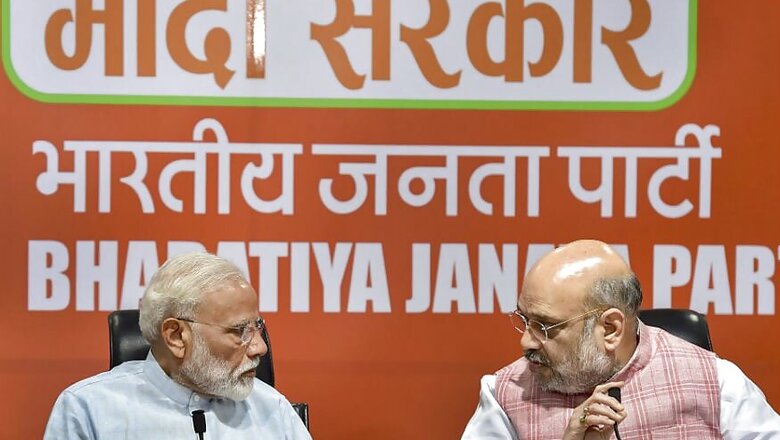
views
Privatisation now seems to figure quite high on the Narendra Modi government’s economic agenda, as it intends to sell its entire stake in Bharat Petroleum Corporation Limited, Air India, and Shipping Corporation of India. With Rashtriya Swayamsevak Sangh (RSS) chief Mohan Bhagwat supporting, or at least not opposing, the sale, political resistance to the bold move is likely to be insignificant.
It is bold because privatisation is the most visible rollback of state from the economy. By selling a public sector undertaking (PSU), government proclaims loud and clear that it is leaving that space for private enterprise to step in, that it is limiting its role in the economy. In fact, in the run-up to the 2014 general election, Modi did say that the government has no business to do business. It is another matter that Modi Government 1 did not follow this free market principle in practice. So, the decision to sell off big PSUs is indeed welcome. Better late than never.
The group of secretaries on disinvestment cleared the sale of the government’s 53.29 per cent shares in BPCL on September 30. The government hopes to sell the fuel retailer by March 31. If it happens, it will help meet the disinvestment target of Rs 1.05 lakh crore for this fiscal. At current BPCL stock price, the government would get something in the region of Rs 57,000 crore.
It needs to be mentioned here that it is not the first time that BPCL is on the block. In the early noughties, the government under Atal Bihari Vajpayee had tried to sell it but failed. What torpedoed the BPCL sell-off was a Supreme Court verdict. The disinvestment was opposed by several people, including many within the government, especially George Fernandes, and the RSS. Some of them moved the apex court, which accepted their argument that the privatisation of BPCL would require approval from Parliament, since the company had come into being by an Act of Parliament. As there was little consensus even within the Cabinet, it was practically impossible to get a parliamentary approval, and the sale process was stopped.
The legislative hurdle, however, was done away with three years ago with the Repealing & Amending Act, 2016, which annulled “187 obsolete and redundant laws lying unnecessarily on the statute-book”. These included the Act of 1976 that had nationalised the erstwhile Burmah Shell. “The Act has been repealed and there is no need for a Parliament approval for strategic sale of BPCL,” a senior official had told PTI.
Typically, the Congress is crying foul and screaming scam. Party spokesperson Pawan Khera said, “So, this is, in a way, a very surreptitious way to bring BPCL and other such PSUs away from Parliament scrutiny and sell them. You do not want any Parliament oversight on your action. Why? Why are you afraid of Parliament of India?”
But Khera ought to answer a simple question: why was his party sleeping when the annulling legislation was passed by Parliament? After all, the Bharatiya Janata Party-led National Democratic Alliance didn’t have—still doesn’t have—a majority in the Rajya Sabha. Even if the NDA regime sneaked in the nationalisation law for annulment, what does it say about the legislative oversight of the grand old party? It looks like it doesn’t take the legislative business seriously; it seems more focused on optics and theatrics. Sadly, the Congress is not alone in such endeavours.
The government also seems to have become serious about the privatisation of Air India, the bane of the taxpayer. It is reportedly inviting bids to sell its entire stake in the so-called national carrier. Last year too, an attempt was made to sell off the airline, but it was half-hearted and half-baked. In fact, the terms and conditions were formulated to ward off rather than woo investors. Now, the committee of ministers to privatise AI is chaired by home minister Amit Shah. One hopes that it finishes the job soon.
As mentioned earlier, the opposition to privatisation is quite insignificant. With the RSS chief on board, affiliate Swadeshi Jagran Manch is likely to make only pro-forma statements against the sale. The Congress, which is moving towards socialism, will resist, but it is too weak to oppose it effectively. It isn’t a bother for the government anyway. As for the pinkish intellectuals, well, they are just ‘Khan Market gangsters’, not to be taken seriously.
In a nutshell, the prospects of privatisation never seemed better under Modi. If the sales of BPCL, AI, and Shipping Corporation (another major PSU on the block) are carried out, they will be a big boost to reforms and the flagging economy.
(The author is a senior journalist. Views expressed are personal.)


















Comments
0 comment